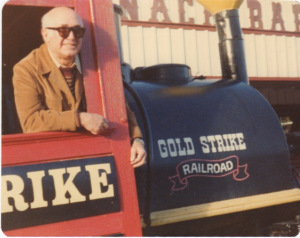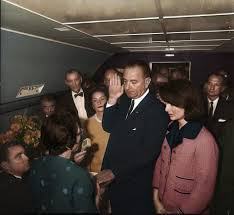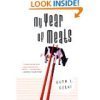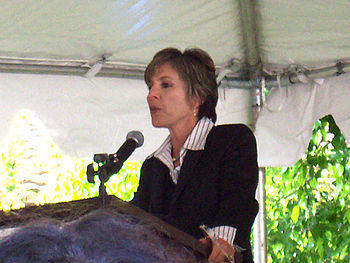Marcy Sheiner's Blog, page 6
April 24, 2014
Five Sentence Fiction #3: Florida
Five Sentence Fiction #3. This week’s prompt is Vacation.
For over 20 years I spent one week a year with my mother in Florida, and every day I took a long delicious walk along the Atlantic Ocean. In the evenings she took me out for expensive dinners. Even so, every morning I’d awaken filled with a sick, sinking feeling inside, except on the day I was going back home. At my mother’s funeral I thought, I never have to come here again, and I haven’t.
Sometimes I miss the ocean.

Filed under: Feelings, fiction, mothers and daughters, Personal, Writing Tagged: Atlantic Ocean, Five-Sentence Fiction, Florida, Vacation, Writing

April 21, 2014
The Goldfinch: Book Review

Lesser Goldfinch (Photo credit: Images by John ‘K’)
The Goldfinch
Donna Tartt
Winner, Pulitzer Prize for Fiction 2014
I’m finding that writing a traditional ‘review’ of this remarkable book is beyond my capabilities, so I’m just presenting my personal, biased and emotional reactions both as a reader and as a writer. Nevertheless, there may be some spoilers ahead.
“To write a novel this large and dense…is equivalent to sailing from America to Ireland in a rowboat, a job both lonely and exhausting…—Stephen King, reviewing The Goldfinch in The Guardian
If reading fiction is an escape from reality, I’m having trouble with re-entry. It’s been over a week since I finished The Goldfinch, yet it’s still one of the first things I think of in the morning and return to several times during the day. Somewhere around page two or three hundred I took up residence in the world created by Donna Tartt, and I’ve yet to move out. (“…with very great paintings it’s possible to know them deeply, inhabit them almost…” —from The Goldfinch.)
The Goldfinch however, is no escape: it thrusts us into the awareness, always just beneath the surface, that the only way out of our troubled lives is death, a truth most of us tend to avoid. When forced to face it, our reactions can range from depression to terror to thoughts of suicide (as in might as well get it over with). I don’t know if this was Tartt’s intention, but it was, at least for me, the novel’s ultimate statement. Not that she doesn’t offer glimmers of joy and hope along the way, particularly in her long summary-like ending: but the dark side decidedly overpowers the light.
A plot-driven novel, The Goldfinch is full of twists and turns and moments of heightened suspense. Unlike most plot-driven books (see John Grisham, James Patterson, Nora Roberts, et al), in which the action is fueled by stereotypical cardboard characters, The Goldfinch is populated by multi-dimensional human beings: Theo, the narrator around whom all others spin; Boris, his chief sidekick, dragged all over the world by his abusive businessman father; Pippa, the girl Theo falls in love with moments before a bomb goes off in the New York Metropolitan Museum, setting the plot in motion; and dozens more. I can still vividly picture every one of these characters, though Tartt, thankfully, allows readers to fill in most of our own visuals—which is odd, considering she’s so heavy on other kinds of description.
As both a reader and writer I’ve never been that interested in description, whether of city streets or country roads, lavish mansions or run-down hovels. Thus, Tartt’s long, elaborate word paintings of whatever’s going on while what’s really going on goes on annoyed the hell out of me—that is, for the first hundred pages or so, until I fully surrendered.The plot is so engaging that I’d impatiently scan the page (or rather Kindle screen), my nerves twitching with the feeling of Come on, get to the story already! For instance, just as Boris is about to tell Theo (and us) what’s become of the treasured painting at the center of the plot, Tartt leaves the conversation momentarily to let us know what’s showing on the TV set in the bar. She’s also big on that famous plot device, the flashback: after the explosion, when Theo crawls through a collapsed passageway seeking an exit, Tartt flashes back to a time when he was stuck in another tight space. Sometimes she even writes a flashback within a flashback.
At such moments I became distracted and annoyed, and read as quickly as possible to get past what I saw as “extra”s…but then a funny thing happened on my way back to “the story”: I began to notice that my impatience was similar to what happens during suspenseful passages; Tartt’s long flights of description left me literally suspended. I was desperate to know what would happen next: I had to turn the pages. Eureka! Are these literary devices—the descriptions, the flashbacks—purposeful techniques employed precisely to create suspense? Is her deftness with these methods partly what makes the book so compelling? Perhaps. No, more than perhaps: probably. It’s worth noting that The Goldfinch is only Donna Tartt’s third published novel, and that she spent eleven years writing it. At a time when would-be authors attend workshops on “How to Write A Bestseller in a Weekend” and toss off a book in six months’ time, Donna Tartt is holding down the fort of literary excellence.
Related articles
 Prima Donna
Prima Donna Pulitzer prize for fiction goes to The Goldfinch
Pulitzer prize for fiction goes to The Goldfinch ‘The Goldfinch’ by Donna Tartt
‘The Goldfinch’ by Donna Tartt
Filed under: Literature, Reviews Tagged: Arts, Book Review, Books, Donna Tartt, fiction, Goldfinch, Literature, Reviews, Writing

April 12, 2014
Narcissistic Mother

Marcy and Stacy c. 1974
One of my poems was published for the first time circa 1974, by The Wild Iris, now defunct of course, a slender purple-covered collection of poems by women. I’d responded to their Submissions Wanted ad in Poets & Writers—in those days nobody

Marcy and Daryl c. 1974
except agents charged reading fees, and dozens of these ads appeared in every issue of the magazine. The most they asked for was a SASE; I must’ve spent hundreds of dollars on stamps, rarely returned: count it as my donation to literary magazines and journals operating on shoestring budgets.
Shortly after receiving my two free copies of The Wild Iris, I brought one with me to my cousin’s engagement party to show my mother. When I arrived she and my Aunt Janice were in the bedroom, shedding their coats. I opened the journal to page 12, I think it was, and presented it to my mother the way I might hand her a plate of her favorite appetizer, Russian caviar. With my smiling aunt reading

over her shoulder, my mother’s features slowly changed from wariness to disapproval. When she finished she handed the book to Janice,proclaiming, “It’s not even true!”
I was stunned and befuddled. Not true? How could it not be true? It was an expression of my feelings, stirred from an identification with another harried mother. Then it hit me: my mother thought the poem was about her! Well, I’ll be damned! Did she think every time I expressed a feeling it was in relation to her? As a matter of fact she did. I have since learned this is typical narcissistic behavior. At the time, however, I only knew my mother had crushed my pride and happiness over one of the biggest accomplishments of my life to date, and that I would never show her any of my writing again. (Things changed for the better over the years, including her attitude, but for a long time after this experience I kept my resolve.)
At the time my kids were nine and seven respectively, and had been living with their father and his wife for two years. Twice a month I rode the Long Island Railroad to pick them up and take them back to my apartment on Manhattan’s Upper West Side for the weekend. On Sunday night I repeated the journey, this time dropping them off and riding back home alone. During the return trip I was sometimes giddy with freedom, other times depressed and lonely. Most of the time I spent the ride obsessing about how I’d manage to take them home with me for good. This schizophrenic arrangement lasted a total of four years altogether, and that’s basically what I felt like for the entire four years: alternately liberated and depressed, and a guilty conscience humming away in the background at every waking moment.
The poem had been inspired during one of my train rides home. A mother with three toddlers was sitting across the aisle from me, trying to control her restless children, who, by the way, had no coloring books, toys or other playthings to keep them amused. She yelled at and slapped the kids every time they stood up or shouted or messed around with each other: i.e., every time they behaved like kids. This is the poem my mother interpreted as a lie about her. It’s as if I, a fully grown adult, existed purely as her appendage or, better yet, her mirror. What bothers me most now, 40 years later, is that I cannot separate the poem, an expression of feelings about motherhood, from my mother. Nor can I remember the first time I had a poem published without remembering her reaction to it. Alive or dead, this narcissistic woman remains powerful enough to mess with my head.
control her restless children, who, by the way, had no coloring books, toys or other playthings to keep them amused. She yelled at and slapped the kids every time they stood up or shouted or messed around with each other: i.e., every time they behaved like kids. This is the poem my mother interpreted as a lie about her. It’s as if I, a fully grown adult, existed purely as her appendage or, better yet, her mirror. What bothers me most now, 40 years later, is that I cannot separate the poem, an expression of feelings about motherhood, from my mother. Nor can I remember the first time I had a poem published without remembering her reaction to it. Alive or dead, this narcissistic woman remains powerful enough to mess with my head.
The Other Mother
The other mother, children by her side
wears an angry scowl—my earlier face.
If I look at her she’ll be ashamed.
See the woman, or the mother?
Passers-by glare and frown as she slaps
half-heartedly and throws small bodies down.
If she catches my stare she’ll be ashamed.
I see the woman. I see the mother.
slap slap slap
sit still or I’ll leave you
slap sit still slap shut up
I swear I swear I’ll leave you.
When she notices me I see what she sees:
a single woman, unburdened, free.
Quickly I look away, ashamed.
She sees the woman, not the mother.
Alone I watch as the train rushes on.
The space between us looms large as a canyon.
Our strongest bond is being ashamed.
We are both women. We are both mothers.
slap slap slap
sit still or I’ll leave you
slap sit still slap shut up
I swear I swear I’ll leave you.
Related articles
 The Narcissistic Mother
The Narcissistic Mother Do You Attract Narcissists as Friends?
Do You Attract Narcissists as Friends?
Filed under: motherhood, Mothers, Poetry Tagged: Feminism, Manhattan, Mother, motherhood, Narcissistic parents, New York Yankees, parents, Poetry, Writing

April 9, 2014
Legacy II: Elvis, LBJ, and My Father

Cover of Elvis Presley
The night Elvis was introduced to America via The Ed Sullivan Show, my mother, a Frank Sinatra fanatic, was amused: sitting on the red loveseat in the living room, knitting as usual, her mouth twitched at the corners as she tried to hold back a smile of…in hindsight I’d say it was ridicule. My older sister alternately screamed and swooned, down on the floor where she always sat in a weird double-jointed position I couldn’t get myself into no matter how hard I tried. Ten years old, I watched Elvis gyrate on the tube, confused by my mixed-up responses, at least partially hormonal. And my father? He was the only one in the family who knew exactly what he thought of this person.
“Arggh!” he half growled, half shouted, waving a muscular arm at the television in disgust and dismissal. “Write this jerk’s name down on a piece of paper, and ten years from now take a look at it. You won’t even remember his name!”

Toby Sheiner (Dad)
This, of course, became one of my family’s most famous stories, a favorite of my sister and me. My poor father’s been dead and buried since January 1980, and we still tell the tale, to which most people respond with, “Wow, he sure picked the wrong guy to say that about!” After all, he could’ve said it about a million other singers who offended him: say, Carl Perkins. Carl Perkins, you know…Aargh, forget it!
I was reminded of my father’s hapless prediction this morning during a news story about Lyndon B. Johnson’s legacy; it brought to mind another prediction of my father’s—except this one was right. LBJ went

Photo: slpssm.blogspot.com
down in history as a presidential failure for continuing, even escalating, the war in Vietnam. Not to mention his path to the presidency; anyone alive at the time still recalls the image of Johnson with his hand raised to take the presidential oath on Air Force One, Jackie Kennedy in a pink blood-stained suit at his side. I was old enough to remember, yet young enough to equate this image with one of a murderer: for a long time I believed Johnson was central in a conspiracy of assassination. (While I still believe JFK’s assassination was a conspiracy, I’ve ruled out Johnson as the hit-man-in-chief.) In any case, what was overshadowed by Johnson’s unfortunate path to power and missteps with the war was his signing of the Civil Rights Act of 1964, and all the other socially progressive legislation of his administration: Medicare, The War on Poverty, food stamps…the social safety net that lies torn and tattered even as I write about it. My father talked about all this on the day that LBJ declared he would not make a run for another term. Then and there my father predicted that “Someday they’ll realize Johnson was one of our greatest presidents.”
Does my father’s clarity regarding LBJ cancel out his inaccurate assessment of Elvis, or even tip the scales a little in his favor? I hate to say it, but I think not. He was so monumentally wrong to think Elvis was a passing trend that his intellectual legacy suffered greatly, no matter how smart he might’ve been with regard to presidential politics. Still…I’ll raise a glass and toast dear old dad later on today, and while I’m at it give Lyndon Johnson his due—belated, but long deserved. Will I include Elvis in my toast? Always.

Filed under: memoir, Personal, Politics Tagged: Carl Perkins, Civil Rights Act of 1964, Ed Sullivan Show, Elvis, Elvis Presley, Frank Sinatra, Jackie Kennedy, Lyndon B. Johnson, Lyndon Johnson, The Ed Sullivan Show, War on Poverty

April 3, 2014
Five Sentence Fiction #2

Icon for lists of science fiction authors (Photo credit: Wikipedia)
I really like this 5Sentence Fiction writing. Lillie McFerrin posts a word, and we write whatever comes to mind, using the word or not. I tend to use it, or have both times now. Also, I don’t know how everyone else does it, but I’m writing them pretty fast, off the top of my head. I’m curious as to what emerges.
This week’s word is “whimsical” and here’s my little ditty:
What Was
A whimsical girl in a whimsical tree with whimsical chimes above her. She swings on a tire and throws back her head for the dizzy sensation she loves. Her heart is light and her smile is gay; she’s young and she lives for today. The sun is out and the sky is blue and it’s only 1952. Smog has not yet smothered the planet.
Related articles
 Five Sentence Fiction
Five Sentence Fiction Five Sentence Fiction – Home
Five Sentence Fiction – Home Five Sentence Fiction – Alone
Five Sentence Fiction – Alone Five Sentence Fiction ~ Shadows
Five Sentence Fiction ~ Shadows
Filed under: fiction, Musings, writers, Writing Tagged: Arts, Five-Sentence Fiction, Flash fiction, Lillie McFerrin, Word Games, Writers Resources

April 2, 2014
Baseball Returns
Here we go again! It’s baseball season, and all I can do is grumble. You’d think I was a Mets fan, or that my team was any one of a number of basement dwellers, the way I feel. I’m a Yankee fan, I’m supposed to be on top of the world all the time—that’s what ol’ G. Steinbrenner demanded, win the World Series every year or you’re losers. Okay, that, I think, went a little too far in wrecking morale. Still, he may have been a tyrant, but what’s gone on since Georgie’s demise is a nightmare.
As the 2014 season opens, I am facing the loss of Mariano Rivera (gracefully retired), Andy Pettite (ditto), Curtis Granderson (sold to the Mets by some moron in the Yankee org) and Robinson Cano (also moronically sold). Even outside of the Yankees I face a heavy loss: Barry Zito, former Oakland A and SF Giant, one of my favorite players and human beings, seems to have vanished after the Giants failed to renew his contract (and who could blame them? But that’s another story.

Last but not least, as we raise the curtain on another year of baseball, the one Yankee remaining on the team that saw its last period of glory during the late ’90s and early ’00s, Derek Jeter, announced this year as his Swan Song—so don’t bother shouting “Next year!” if things hit bottom. And, indeed, the guys lost their first game yesterday against one of my most hated teams, the F.O.B. (Friends of Bush) Houston Astros.
My allegiance to the New York Yankees is, like some people’s allegiance to a particular religion, by birth and by choice. I’m a Yankee fan by birth: I was born in the Bronx. But I chose to be a Yankee fan because in this one area of life, unlike politics and a few others I’ll decline to mention here, with the Bronx Bombers I get to be a winner more often than not. Unlike the hapless Met fan, I get to experience joy more frequently than pain. At least, that was the deal for decades. Now my Yankee fandom is going the way the aging experience goes: it’s all about loss, as beloved players and managers leave. No choice have I but to butch it out and adjust, the way I do over the loss of teeth and energy.
One thing I don’t have to lose, though, is hope: the Yankees might be great this year. As the little kid in Angels in the Outfield says of the improbable all throughout the movie, “Hey, it could happen!”
So Play Ball!
Related articles
 Harper: Yanks bow to spirit of Boss
Harper: Yanks bow to spirit of Boss Leadership Helping Yanks Stay Ahead
Leadership Helping Yanks Stay Ahead
Filed under: Baseball, Derek Jeter, Mariano Rivera, sports, Yankees, Zito, Zito Tagged: Andy Pettite, Baseball, Bronx, Curtis Granderson, Derek Jeter, G. Steinbrenner, Major League Baseball, Mariano Rivera, Mets, New York Yankees, Robinson Cano, sports

March 22, 2014
Legacy
The following was written in response to the prompt “Ruins” on Five Sentence Fiction:
The old cemetery reminded Jessica of ancient ruins, though the Parthenon was the only place like that she’d ever seen.
She smiled inwardly, remembering the erotic story she’d been inspired to write afterwards.

Parthenon, Athens Greece Photo credit: Wikipedia
“What a gutter snipe I am,” she thought, and was immediately startled such a phrase had occurred to her.
She looked around at the mourners, all of them sobbing for her Daddy, who’d once called her “a gutter snipe” for cursing.
Some fucking legacy.

Filed under: Musings Tagged: ancient ruins

All Over Creation by Ruth Ozeki: Book Review
All Over Creation isn’t Ruth Ozeki‘s most recent book — that’s A Tale for The Time Being — but one of my blog followers gave me this one as a donation gift, and it’s the second Ozeki novel I’ve read. The first—also her first—was My Year of Meats, a book that knocked me out completely; to this day I mention it, along with Upton Sinclair‘s The Jungle and Steinbeck’s The Grapes of Wrath, any time talk turns to whether a book can actually affect some aspect of life as we know it. Like MYOM, All Over Creation’s message is artfully woven into a story I inhaled like oxygen, peopled with characters I felt I knew. All of them are wildly different, and come from various walks of life, with opposing philosophies and politics, yet they come together and respect one another. So complex was the development of the story and the characters’ interactions, I couldn’t help but face the certainty that I could never write a book like this. I couldn’t. I don’t know how Ozeki did.
With the exception of Eliot, a history teacher-turned-corporate pimp—that is, PR man for a pesticide company—who was an enigma to me, everyone in AOC resembled people I’ve known for real. If I identified with anyone it was Yumi, a woman so full of contradictions she’s constantly being pulled in six directions at once. Yumi was and still is  regarded as scandalous to the good folk of Liberty Falls, Idaho, many of whom interpret her behavior as classic signs of a “Bad Mother.” In fact Yumi is passionately crazy for her kids—it’s just that she also insists on having a life of her own; she isn’t someone who, like her best friend Cass, can devote herself to hearth and home only. Sure, she’s selfish and self-indulgent, and yes, she makes some bad decisions—but she isn’t unkind and she isn’t a “Bad Mother.” Still, Yumi’s contradictions are torture to live with, and invariably lead her to trouble, inflicting a mess of collateral damage in her wake.
regarded as scandalous to the good folk of Liberty Falls, Idaho, many of whom interpret her behavior as classic signs of a “Bad Mother.” In fact Yumi is passionately crazy for her kids—it’s just that she also insists on having a life of her own; she isn’t someone who, like her best friend Cass, can devote herself to hearth and home only. Sure, she’s selfish and self-indulgent, and yes, she makes some bad decisions—but she isn’t unkind and she isn’t a “Bad Mother.” Still, Yumi’s contradictions are torture to live with, and invariably lead her to trouble, inflicting a mess of collateral damage in her wake.

Ruth Ozeki (Photo credit: Kris Krug)
As for the rich, twisting and somewhat twisted plot: Yumi’s father Lloyd, a lifelong potato farmer, is dying when Cass tracks her down in Hawaii. Yumi comes home, not having seen her parents since she ran away at 14. She arrives with three racially mixed fatherless kids in tow, and bumbles through her unique version of caretaking. Meanwhile, on the highways of America the Seeds of Resistance, a group of food activists, are roaming the country staging protests in supermarkets and food corporations, fueling their Winnebago with McDonald’s used french fry oil. They happen to see a seed brochure put out by Lloyd and his wife Momoko, who’s been cultivating her stuff for decades, organic seeds worlds apart from the genetically engineered crap coming out of the labs of Eliot’s employer, Cynaco (cyanide anyone?). Along with seed descriptions Lloyd pens his raving religious philosophy, which somehow coincides with the beliefs of the Seeds of Resistance, and voila! It’s a match made in heaven.
I’ve already given away too many potential spoilers, so that’s all I’ll say about the plot. What’s more important, I couldn’t tear
 myself away from this book, and I fell in love with every one of Ozeki’s people. I’m now gearing up to read her latest book. Ozeki is a wonderful writer. Read her!
myself away from this book, and I fell in love with every one of Ozeki’s people. I’m now gearing up to read her latest book. Ozeki is a wonderful writer. Read her!
Related articles
 Ozeki and the Information Age: Straight from the Mouths of Everyday People
Ozeki and the Information Age: Straight from the Mouths of Everyday People Ruth Ozeki’s “Tale for the Time Being” nominated for Man Booker prize
Ruth Ozeki’s “Tale for the Time Being” nominated for Man Booker prize
Filed under: Review, Writing Tagged: All Over Creation, Book Review, fiction, Literature, Ruth Ozeki

March 10, 2014
News From The Laundromat

Coin-operated American Dryer Corp. clothes dryer in a laundromat in Daly City, California. (Photo credit: Wikipedia)
Two news items from my laundromat:
• If you’re not too tired of reading interviews with me—there’ve been quite a few lately thanks to my new Goodreads connections—another one is up at Troy Jackson’s blog. Troy’s another indie self-publisher whose interest in others of the breed has led him to give us a platform. So check out his space.
• I want to publicly acknowledge and thank sister and follower Juanita Rice for taking a suggestion on the  Help Me Do My Laundry page where I list ways for my readers to support my blog. Juanita sent me a book from my Amazon Wish List, All Over Creation, by Ruth Ozeki.
Help Me Do My Laundry page where I list ways for my readers to support my blog. Juanita sent me a book from my Amazon Wish List, All Over Creation, by Ruth Ozeki.
That’s all the Dirty Laundry for today. It’s already almost 5:30 (a.m.) so I’d better g0 stretch these old bones, jump in the shower, and put on my editor’s hat for one of my favorite jobs, editing someone else’s novel.
May the rain keep comin’ and slake California’s endless thirst.
Related articles
 Benefits Of A Laundromat
Benefits Of A Laundromat Ode to Laundromats
Ode to Laundromats 8 Simple Rules for Surviving the Laundromat
8 Simple Rules for Surviving the Laundromat
Filed under: Musings, Writing Tagged: Arts, dirty laundry, laundromat

March 9, 2014
An Open Letter to Senator Barbara Boxer

Boxer speaks at an event. (Photo credit: Wikipedia)
I have just sent the following email to Senator Barbara Boxer:
Dear Senator Boxer:
I recently listened, via podcast, to your speech at the Commonwealth Club. I agree with and am grateful for your point of view on what’s happening in our country, and your policy ideas for repairing some of it, like raising the minimum wage for everyone and addressing climate change on a tangible level. However, I’m sorry to say that some of your perspective is myopic and limited.
When you say those who “play by the rules” ought to reap the rewards of the “American Dream” you…discount me and every other artist in this country. I am a writer, and I’m speaking as well for painters, sculptors, musicians, actors, and everyone else who commits themselves to bring truth and beauty into the world. We are consistently told we do not “play by the rules” because we don’t buckle down and go to work for some corporation or other. Similarly, when you say those who “work hard,” you omit the disabled population who cannot “work hard” at most of the jobs available in our culture. When you say government must step in when “the middle class is in trouble” you omit the poorest of the poor.
In fact, Senator, by your choice of language you are dismissing everybody whose personality or disposition doesn’t fit into the capitalist mold. Some of us just can’t make it in the usual 9-5 routine—and we pay for it, believe me, we pay for it.
I am the mother of a disabled son who is now nearly 50. Between raising him myself (and a daughter) through brain surgeries and seizures, while still trying to write (not to mention being one of, as Erica Jong calls us, the “whiplash generation” of women who had the game switched on us midway), I have had a checkered work history that’s left me with a paltry amount of Social Security and nothing else to support me now that I’m 68 and getting older every day. My son is poor, I am poor, and I’m told it is my fault for not playing by the rules. You should know, however, that I have worked extremely hard in my life by necessity, and it continues. Compared to my still-married friends who’ve retired to Florida or Costa Rica, my life in East Oakland is deprived. I am not complaining: I’m glad I didn’t spend my entire life in some office (as it is I had to spend too much time in them). But I do want you to know that I and millions of us who don’t fit the American Dream mold deserve a decent life just as much as the middle class corporate workers, who I readily admit have also struggled without reward or justice because of what’s become of this country.
Despite my criticism of your language and what it might reflect, I still thank you for holding down the liberal fort in Congress.

Filed under: Current Events, Musings, Personal, Politics, Rants, Writing Tagged: Barbara Boxer, California, Dear Senator Boxer, Social Security, the Commonwealth Club, United States Congress










